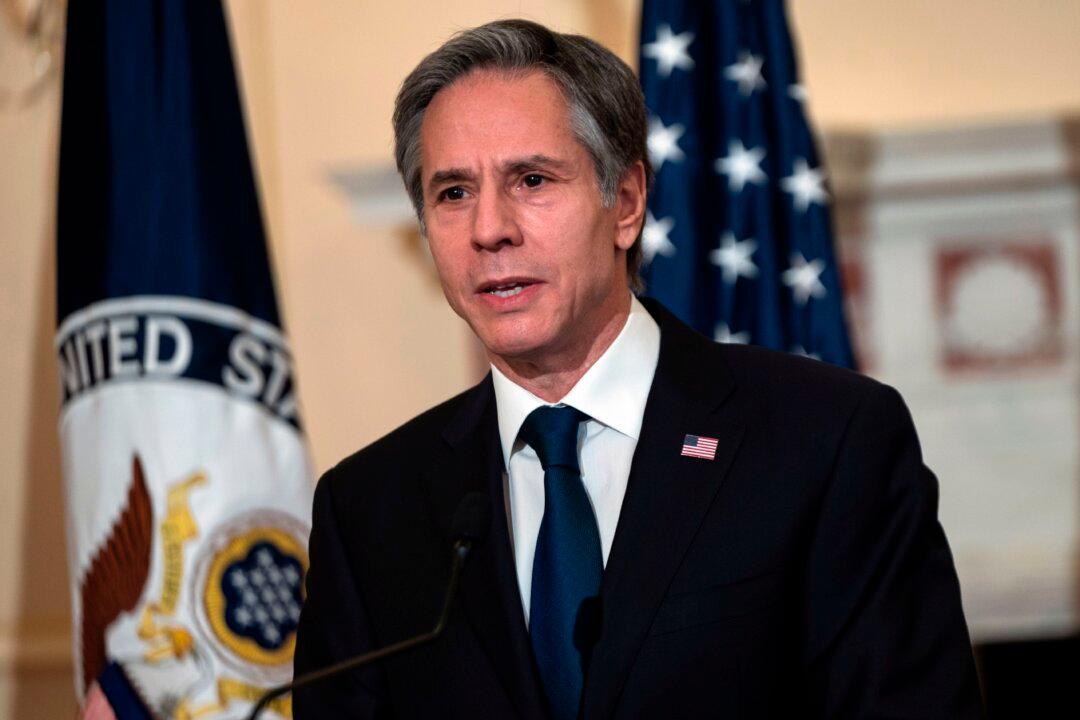Secretary of State Antony Blinken on Wednesday outlined how President Joe Biden’s administration will approach the foreign policy arena, including shifting the United States back into international agreements after the previous administration stressed strong nationalism.
During a speech from the State Department, the Biden appointee said the Democrat-led government will “renew America’s strength to meet the challenges and seize the opportunities of our time” by cooperating with other nations in combating the COVID-19 pandemic, especially on vaccinating people and hammering out deals like the one reached with Iran under the Obama administration.





